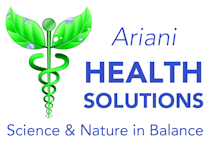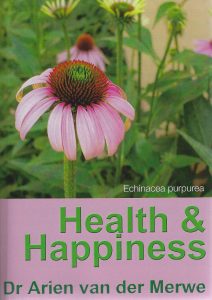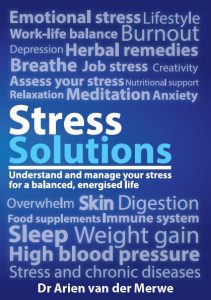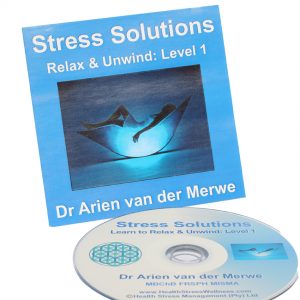Depression is a ‘whole body’ disorder that involves mind, brain and body, thoughts and feelings.
Depression, anxiety and panic attacks are not signs of weakness. Rather signs of trying to remain strong using your own ego willpower for far too long. 1 in 3 of us will experience symptoms at some point in our lives and will need love and support.
The integrative, energy perspective on disease as teacher, is not in any way meant as criticism or judgement in saying you cause your own disease! It is meant as a tool of empowerment to realise that disease has deeply unconscious causes and symbolic meanings and can act as a powerful and gifted teacher in helping you return to health and wellness. As James Hillman (psychologist) said in his book ‘A Blue Fire’: ‘The right reaction to a symptom may as well be a welcoming rather than laments and demands for remedies, for the symptom is the first herald of an awakening psyche which will not tolerate any more abuse. Through the symptom the psyche demands attention. Attention means attending to, tending, a certain tender care of, as well as waiting, pausing, listening. It takes a span of time and a tension of patience. Precisely what each symptom needs is time and tender care and attention. Just this same attitude is what the soul needs in order to be felt and heard.’
Depression, insomnia and anxiety are over medicated, as a quick fix in our society, which would rather use medication than going into the deeper, often painful, causes and blocked emotions, where true healing is effected. Antidepressants can play a role, but at best, will manage the symptoms for a while, even then with many side effects. Even if they are prescribed to patients, it is not enough. Transpersonal psychotherapy and holistic health counselling are essential elements in an integrative approach. There are so many natural remedies to use, from food to highly effective, well researched herbal remedies. These will manage overall health and wellbeing, help for symptoms, but most importantly, as natural remedies do, support physiology of the whole body-mind – in this instance specifically then the neurotransmitters (neuropeptides) as informational substances (including all of them and not only one! E.g. serotonin, dopamine, acetylcholine, adrenalin and noradrenalin, as well as gamma amino butyric acid or GABA and glutamate), hormones and epigenetic renewal. Please refer to my previous articles on epigenetics and neuropeptides in Village News and on my website for more information.
Dr Kelly Brogan, psychiatrist, states that prescription drugs can even cause depression. As she says: ‘Let’s face it, our current medical industry loves pills. When you go to the doctor for any kind of discomfort with any kind of diagnosis, chances are that the doctor will write out a slip of paper and send you to the pharmacy. Every illness, every injury, every bodily inconvenience has some kind of corresponding medication for us to take. So that’s what we’ve done for the greater part of the last century. It’s tempting to think that we can be fixed by medication because it’s quick and easy.
The truth is that our bodies are more complex than we’ve been taught, and more importantly, we know much less than we think we do. Only recently have we started to understand how connected the gut, brain, mind, hormones, and immune systems are. So it’s not a huge surprise that we think of our bodies as machines—that we can feed them some chemicals and they’ll run smoothly again like a car that just got an oil change’.
And as A Course in Miracles says: ‘in general terms, depression is caused by our identification with the ego, which brings with it a sense of deprivation — the belief that due to forces beyond our control, we lack and cannot acquire the things we need to be happy. Depression is healed by choosing to renounce the ego and listen to the Higher Self, Who reminds us that our sense of deprivation comes only from our own decision to deprive ourselves, and restores to our awareness the fact that we already have everything we need to be happy’.
Serotonin and gut health (please read my previous article in Village News and on my website)
95% of serotonin is made and found in the gut and only about 5% in the brain.
Psychiatry has known about the role of the immune system in certain presentations of depression 2000. Groundbreaking thinkers like Maes, Raison, and Miller have written about the role of altered immune set points and inflammation in depression. Our immune systems are largely found in the gut and the interplay between the gut and the brain is a complex and profoundly important relationship.
Depression is the mental health condition mostly associated with long term stress. So is gut and immune system health. High levels of cortisol (found in chronic distress) and low serotonin (the ‘feel-good’ hormone and neurotransmitter), with adrenalin and noradrenalin (stress hormones) dysfunction, all found in chronic stress, play a role in the development of depression and many other chronic diseases. So does the internal stressful world experienced when negative energy is turned inward towards the self. A way of thinking, leading to specific thought cycles, then the ‘molecules of emotions’, leading to dysfunction in the manufacturing of specific peptides or information substances. Wrong thinking and the emotions around the search for meaning, are the root causes of depression, not the chemical imbalance in the brain, which is the result.
Nightmares, forgetfulness, fatigue, irritability, deep unhappiness, apathy, poor concentration, social isolation, increased or decreased appetite, increased intake of tea, coffee, tranquillisers and antidepressants, and increasing feelings of aggression and hopelessness, are all symptoms and signs of negative stress, but also of depression or dysthymia (mild depression).
Life is full of emotional highs and lows and everyone experiences the ‘blues’ from time to time. But when the ‘down’ times are long lasting or interfere with your ability to function at home or at work, you may very well be suffering from a common, serious illness: depression. You need support and help to manage it holistically.
Depression facts
Depression is a ‘whole body’ disorder that involves mind and body, thoughts and feelings. According to The South African Depression and Anxiety Group (SADAG), research has shown that 20% of the population will suffer from a depressive illness during the course of their lives. It’s far more common in women than in men, affecting one in 5 women and one in 15 men: Women are at greater risk due to hormones, work stressors, family responsibilities and increased rates of sexual abuse and poverty.
The main types of depression
- Major depression: a combination of symptoms that interfere with the ability to work, sleep, eat and enjoy pleasurable activities
- Dysthymia: involves long-term chronic symptoms which are not as disabling as those of major depression but prevent you from feeling predominantly good
- Bipolar disorder (formerly known as manic depression): involves cycles of manic and depressive episodes.
- Seasonal affective disorder (SAD), found in sensitive people when the sun does not often shine – hence the most important treatment is getting out into sun and nature whenever you can. Sunlight early morning and late afternoon provides us with the healing of the sun, as well as vitamin D.
Depression can happen to anyone, at any age, to people of any race or ethnic group. It’s important to differentiate between feeling down, or having the blues, and clinical depression. At certain times in our lives we all go through periods of feeling sad or not coping, usually as a result of emotional trauma like divorce, financial difficulties, the loss of a loved one or losing a job. Usually within a relatively short period of time, you’re able to come to terms with the situation and pick up the pieces once again. When you’re not able to do so, however, when these symptoms continue and you’re unable to cope, it’s important to seek support. When you’re clinically depressed, you can’t just simply ‘pull yourself together’ and get better.
Depression is mostly a manifestation of irregularities in the body that often starts far away from the brain and is not associated with so-called ‘chemical imbalances’. The medical literature has emphasized the role of inflammation in mental illness for more than twenty years (unfortunately, it takes an average of 17 years for the data that exposes inefficacy and/or a signal of harm, to trickle down into your doctor’s daily routine; a time lag problem that makes medicine’s standard of care ‘evidence-based’ only in theory and not practice). Not a single study has proven that depression is caused by a chemical imbalance in the brain. That’s right: there has never been a human study that successfully links low serotonin levels and depression. Imaging studies, blood and urine tests, post-mortem suicide assessments, and even animal research have never validated the link between neurotransmitter levels and depression. In other words, the serotonin theory of depression is a total myth that has been unjustly supported by the manipulation of data. Therefore, if you think a chemical pill can save, cure, or fix you, you’re wrong.
Depression is now listed as an important risk factor for heart disease and diabetes – part of what’s called the ‘triad’.
Depression is over medicated. Antidepressants have the potential to irreversibly disable the body’s natural healing mechanisms. Despite what you’ve been led to believe, antidepressants have repeatedly been shown in long-term scientific studies to worsen the course of mental illness, as well as increasing the risks of liver damage, bleeding, weight gain, sexual dysfunction and reduced cognitive function. Antidepressants are also among the most difficult drugs to taper from, more so than alcohol and morphine. While it might be called ‘going through withdrawal’, medical professionals have been instructed to call it ‘discontinuation syndrome’, with debilitating physical and psychological reactions. Antidepressants also have a well-established history of causing violent side effects, including suicide and homicide. In fact, five of the top 10 most violence-inducing drugs have been found to be antidepressants.
Even if we accepted the proposition that medication is helpful for some, 82% of which is due to the placebo effect, according to Dr Irving Kirsch (Associate Director of the Program in Placebo Studies, lecturer in Medicine at Harvard Medical School), deductinh a medical cause from this observation would be the same as saying that shyness is caused by a deficiency of alcohol, or that headaches are caused by a lack of codeine.
Written by Dr Arien van der Merwe, medical doctor and author specialising in natural medicine, herbal remedies, stress management and holistic health counselling. Come listen to her talks on ‘Nature’s Pharmacy’ and ‘Herbs as Part of a Healthy Lifestyle’ during the Flower Festival at Fernkloof 21-24 Sept. 2019. Her books, relaxation USB and products will be on display and for sale.
Address: Arundel Medical Rooms, c/o Church & Arundel St, Hermanus.
Tel no: 067 1166 111. Email: Hermanus@DrArien.co.za. Website: www.DrArien.co.za
Part 2 of this article in next week’s Village News, will explain more about the many integrative, holistic and natural solutions to manage depression.









